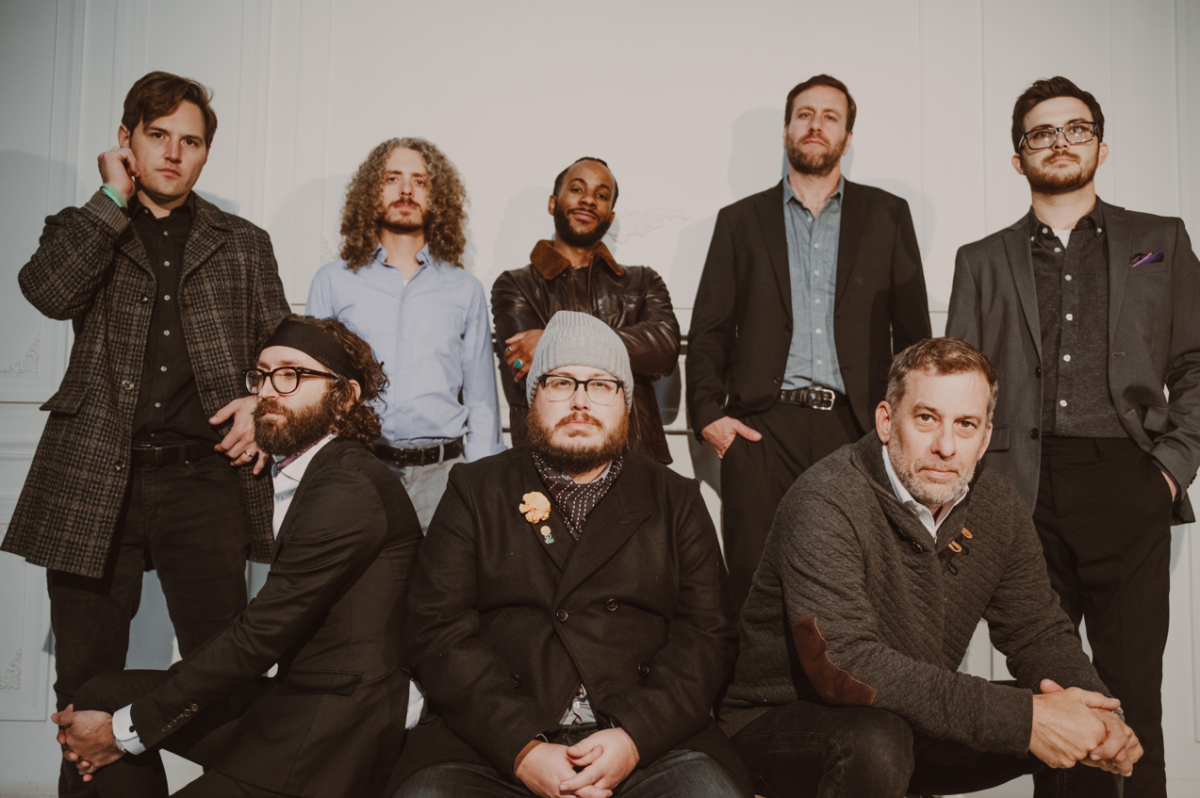By Dave Gil de Rubio
The ancient Greek playwright Euripides said, “To a father growing old, nothing is dearer than a daughter.”
It’s a sentiment Paul Janeway, the namesake of Southern soul outfit St. Paul & the Broken Bones, can relate to. In 2020, fatherhood and the ability to create a musical message for Janeway’s then-unborn child became a major inspiration for Angels in Science Fiction, the fifth and most recent album from this Alabama octet.
When Janeway and his wife learned they were expecting a daughter, the 30-something frontman found himself grappling with a wellspring of creativity amidst a generational pandemic.
“Once the pandemic happened, along with what was going on with George Floyd and all this type of social unrest and big things that were happening, it was spawning a lot of music and inspiration,” he says. “For me, becoming a dad for the first time was about exploring all the anxieties, joys, and clichés that come with it. The record was [coming along] in a being-struck-by-lightning kind of pace where we’d come up with something and the song was written. It was just kind of overflowing.”
A flurry of songwriting occurred in April 2020, but due to COVID-19 restrictions, it wasn’t until September that St. Paul & the Broken Bones was able to hit Sam Phillips Recording studio in Memphis, along with a quick jaunt back to Alabama, and lay down what became the dozen songs that make up Angels in Science Fiction. For Janeway, getting these tunes in the can became a race against the clock because his daughter was due later that month.
What emerged is a complicated collection of songs wrapped in the ambience of quasi-psychedelic neo-soul that subtly conveys Janeway’s feelings of joy, fear, and confusion tied to this major worldview shift that comes with bringing another life into the world. Spirituality is a major driver in these songs, which is unsurprising given how Janeway’s childhood is rooted in a conservative religious upbringing. And while he’s gone down a more secular path not unlike his hero Al Green, the holy spirit is never far away on Angels.
The melancholy title cut opens with Janeway crooning, “I don’t know if God is real, but then I see Him in your eyes / I don’t think I hear his voice, but then I hear your little cry / Angels seem like fiction, but now I’m not so sure,” while the glockenspiel-soaked “Sea Star’’ has its roots in a pastor’s sermon from Janeway’s youth. Elsewhere, the mid-tempo soul groove of “City Federal Building’’ evokes vibes of minor-key Stax/Volt as Janeway sings of crumbling skyscrapers and dead leaves. The album’s most heart-on-your-sleeve moment is the piano and string closer “Marigold,” a tribute named for his daughter that finds Janeway promising, “I don’t want you to be alone / But I gotta go, I’ve got a show.”
While family is at the core of this new record, it’s not the first time Janeway has looked to his family tree for a creative spark. The band’s third album, 2018’s Young Sick Camellia, went from the vocalist wanting to record separate EPs that would serve as the voices of him, his father, and grandfather, to a full-length outing that musically connected the trio of generations with spoken-word conversations between the singer and his grandfather interspersed into the album. In many ways, Angels in Science Fiction is a companion piece to Camellia, despite the two albums sandwiching 2022’s The Alien Coast.
“I think my relationship with family is a complicated thing, as is my relationship with religion,” Janeway says. “Alien Coast is its own separate thing. I think [Angels and Camellia] intertwine a lot and are such a part of what inspires me that it’s still a well. I think there’s definite connective tissue between those two records.”
St. Paul & the Broken Bones is currently on tour in the States, including a stop at The Jefferson Theater on March 3, and presenting a full Angels in Science Fiction production on this run. In the meantime, Janeway feels this latest outing is a creative inflection point for his band. The vocalist went from being a kid whose childhood dream was to become a preacher, and stumbled into a secular gig fronting a soul band, to getting a firmer grip on his creative impulses a decade-plus in.
“I’ve said that with this record, it feels like the end of the book,” Janeway says. “This feels like whatever the band was trying to do, prove or whatever it is, this is the end. Now, we as a band have to reassess: what are we? What do we want to accomplish, and what do we want to do?
“Now that we’re where we’re at, I think it’s really fun. But it does feel like the end of an era for us with this record and I think that’s interesting. People are asking if we’re going to break up and that’s not what I’m saying.”
